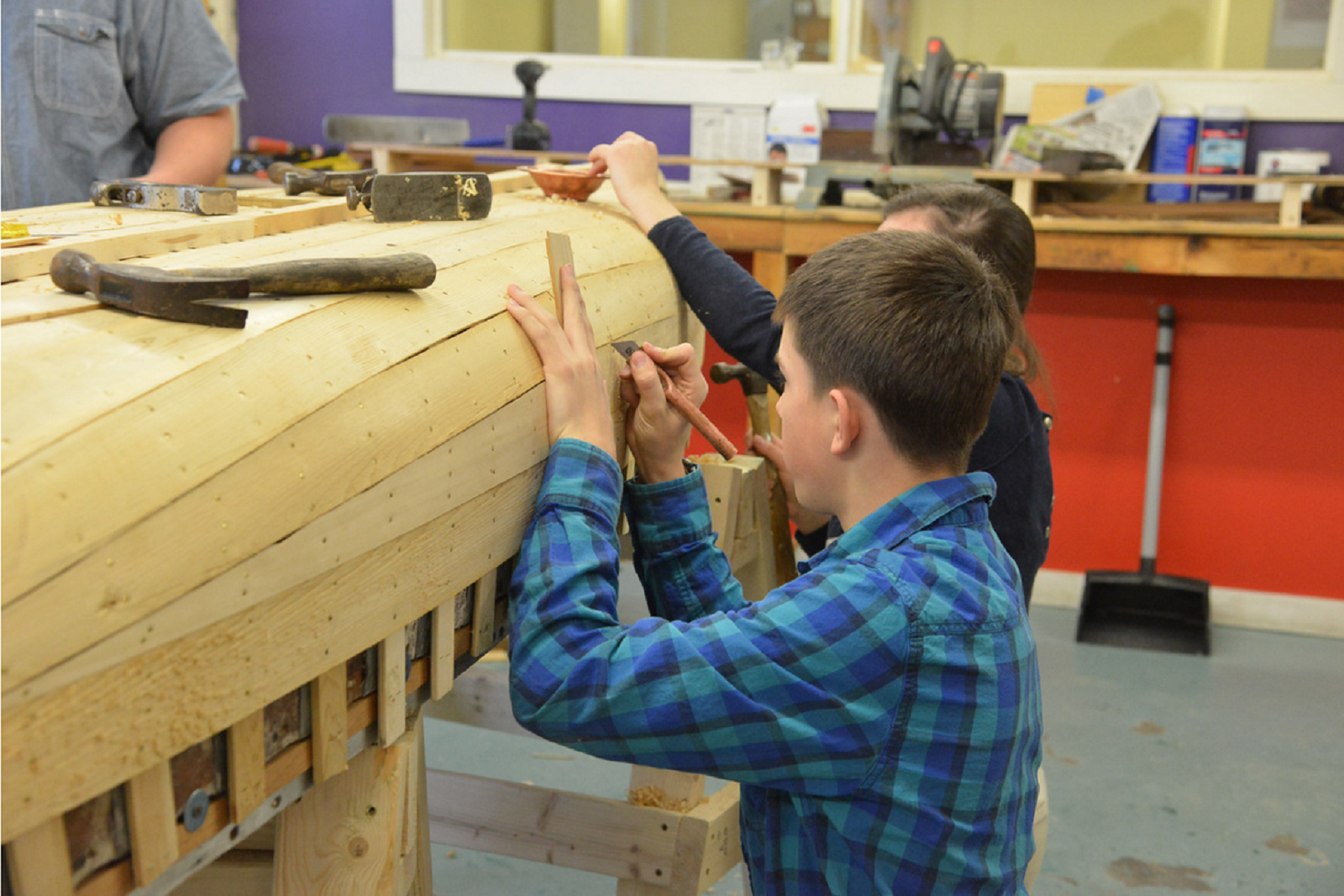
Gone are the January blues at Lyndon Institute. This world-class day and boarding school located in the heart of stunning northern Vermont, U.S., recognizes how vital it is to stimulate and motivate students to ensure educational success, utilizing its forward-thinking January Term which aims to challenge, engage and rekindle student curiosity after the Christmas break. Held between the first and second semesters, for the three weeks after the holiday vacation, students participate in an “interim” term to immerse themselves in either an intensive study of subjects of their choosing or an internship.
This unique approach supports a much more hands-on approach, ensuring that students are more applied and creative in their learning approach. Students benefit from taking field trips related to their chosen subject combinations and gain experience in using the tools of their chosen discipline. By sharing and engaging with their peers, Lyndon students are able to undertake periods of daily reflection, thinking ahead to future university paths and career opportunities. The Institute hosts lectures and talks in order to engage students with industry experts and professionals, aiming to help students develop a more in-depth understanding of the Institute’s principles.

Lyndon is proud of the wide variety of January Term opportunities on offer to its students. From the more academic, such as Advanced Placement U.S. History, to helping the community through creating and donating knitwear and quilts, students are encouraged to follow their passions and explore different outlets.
During January Term, each student creates a project, reflecting what they have learnt and discovered during their new courses. These projects, which are measured against predefined course requirements and objectives, might include: performances, videos, formal presentations, creation of web page resources, certification in a field, a business plan, a journal, a publication, or a final product. This unique learning experience not only serves to inspire students after their Christmas vacation, it also supports a healthy interest in life after school.
Interested in how January Term operates? With a wide range of courses available, there are study options for each and every child. Read on to better understand the Lyndon Institute’s innovative January Term helps students be their best:
How does it work?
Students begin their day at 7.50am and blocks finish at 2.45 pm with a lunch break included. All students participate in a total of three to four blocks per day, having pre-selected their January Term classes during the Fall term. Credits are awarded depending on the number of blocks in each course: a 1-block course will earn .25 credit, 2-block courses will earn .5 credit, 3-block courses will earn .75 credit and 4-block courses will earn 1.0 credit.

Advanced Placement (AP) courses
AP courses are incredibly varied and exciting, with students in class for half of the block and the remaining time used for independent study. AP courses are at university-level, so that students receive a rigorous education to prepare them for their post-secondary experience, and students can earn university credit while still in high school.
January Term options – something for everyone
From European history to canoe carving, calligraphy, A cappella choir, a Lyndon trip to China, DJing, fly fishing and knitting, there really is something for each and every student as part of the January Term activities. Lyndon students are encouraged to try something new, mixing with different peer groups and students. As well as learning new skills, students are also taught to think critically, make rational decisions and interact as a team. Activities such as metal work and the automotive service excellence certification course also require students to get to grips with health and safety requirements in the workshop and beyond.

Internships
Lyndon students can also elect to undertake an internship in a local industry as part of their January Term activities. Students are encouraged to explore their future career interests by spending time with a professional currently working in the sector. Students will follow the day-to-day activities of someone in the workforce, getting their questions answered and obtaining a better understanding of the ins and outs of their chosen field of interest. Lyndon sets up internships with a variety of workplaces and institutions, ensuring that student demand and curiosity can be met and challenged.
Independent study
Students may also choose to undertake independent study, while supervised and guided by a faculty adviser. During independent study students can propose a wide variety of independent projects or written coursework to research and explore in depth. All students then go on to participate in the Exhibition Night, held at the end of January Term each year.
____________________________

This article was sponsored by Lyndon Institute, an independent boarding and day school for grades 9 to 12. Since its founding in 1867, Lyndon has supported and encouraged students as part of its unique educational experience which continues to promote good citizenship. The school offers its students a 200-course curriculum specializing in core and honors academics, fine and performing arts, and technical and career- focused programs. At Lyndon each child is treated as an individual, benefiting from the school’s 130-acre campus. Located in the scenic and historic Northeast Kingdom of Vermont, Lyndon remains a key educational and cultural resource for the entire community.







